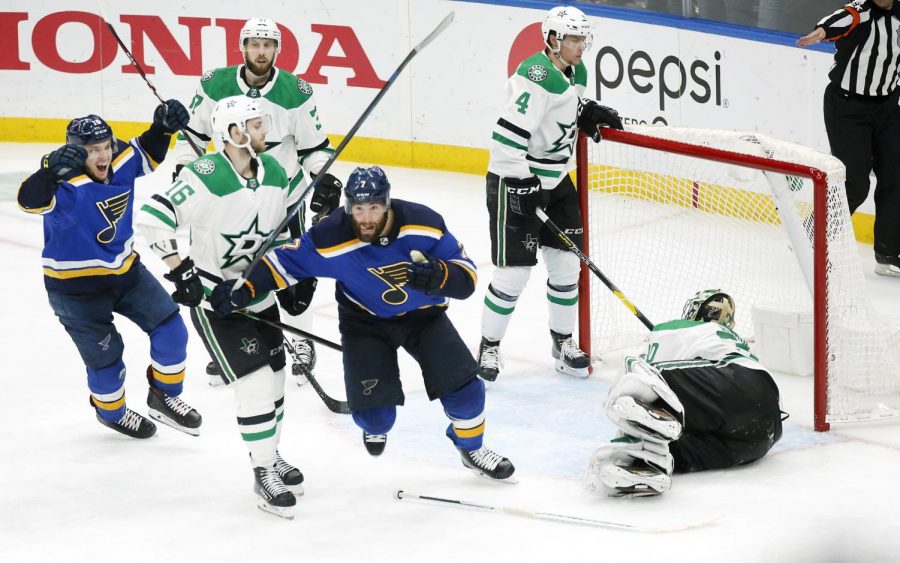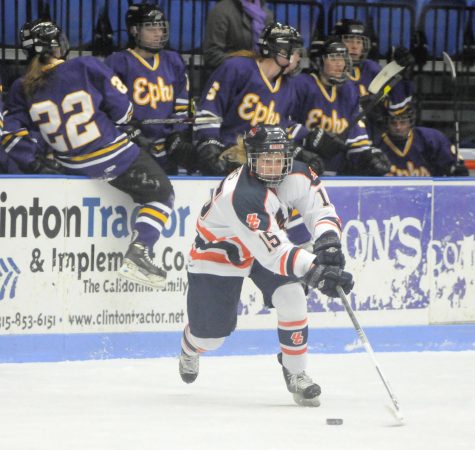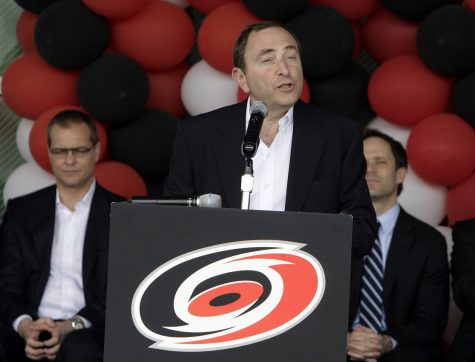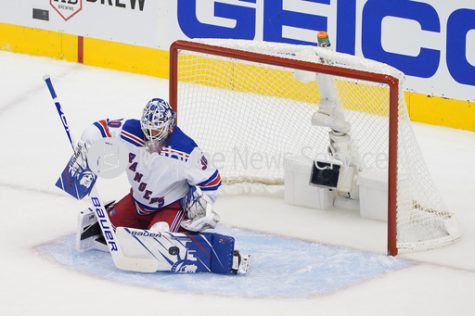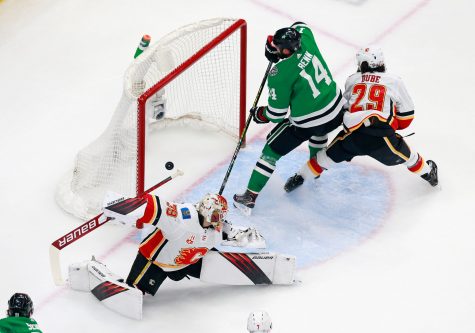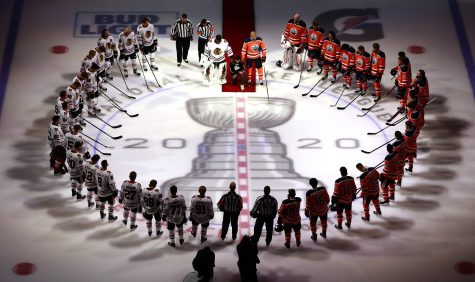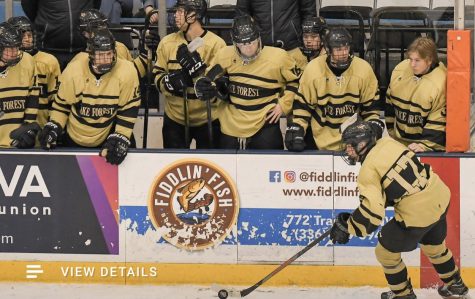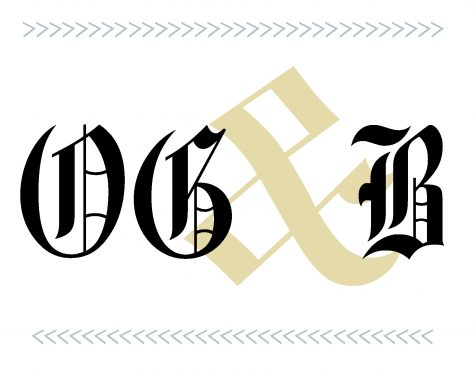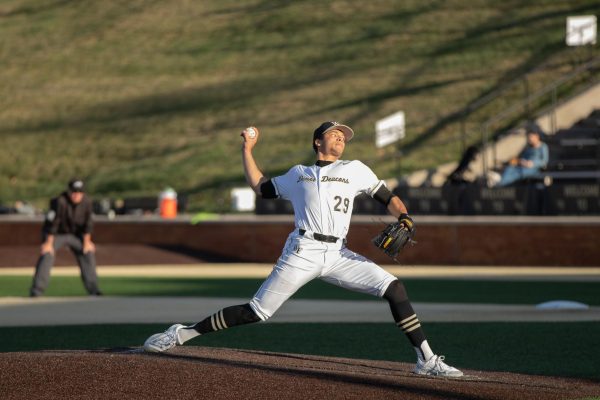Bubble no more: the NHL stumbles of out the gate
Since beginning their 2021 season, the NHL has faced several challenges
The Dallas Stars are one of only three teams to allow fans into their games for the beginning of the 2021 season.
February 4, 2021
In an empty Edmonton arena, usually home to tens of thousands of raucous Oiler faithful, the Tampa Bay Lightning celebrated a Stanley Cup victory like no other. This historic win followed a season that had stretched for nearly an entire calendar year. Sadly, there was no similar atmosphere of jubilation found at the NHL offices in New York, where increasingly dismal COVID-19 data had thrown the league’s 2020-2021 season plans into disarray and the finances of the league’s clubs into shambles.
Speaking before the start of the season, NHL commissioner Gary Bettman described the dire financial situation the league was in, given that the league earns 50% of its revenue from ticket sales. In comparison, the NFL relies on tickets for just 15% of its revenue, and the NBA 22%. Even the MLB, considered a ticket sale dependent league, only counts around 30% of its revenue as from ticket sales.
Only the Dallas Stars, Florida Panthers and Arizona Coyotes opened their arenas to a limited number of fans, with the 28 other clubs unable (or unwilling) to seat fans. The Lightning chose not to welcome back fans amidst surging cases, making the decision independent of local health authorities and governments.
The NHL’s adaptations have been additionally complicated by the seven teams that play in Canada. While the NBA’s Toronto Raptors have relocated to Tampa, the NHL has created a Canadian division that eliminates all cross-border regular season travel. Along with the “North” division, the NHL has split the league into three other geographical divisions in an attempt to minimize travel. This has had the unintended consequence of creating significantly uneven divisions, with the Eastern division boasting most of the game’s brightest stars and the west mired in mediocrity.
Unsurprisingly, the league’s plans have required constant adjustment as positive tests and contact tracing have caused postponements and forced superstars to sit.
The Washington Capitals were fined $100,000 after the positive test of goalie Ilya Samsonov prompted contact tracing that exposed that four players had been in the same room, a violation of strict rules that kept superstar Alexander Ovechkin out for ten days.
Elsewhere, the entire coaching staff of the Las Vegas Golden Knights was forced to quarantine after an assistant coach tested positive, meaning the Nevada-based franchise met the St. Louis Blues under the coaching staff of their local minor league affiliate. The Golden Knights ultimately closed their practice facility and postponed a series of games, bringing the total number of postponements league-wide to 11 in under three weeks.
In the weeks before the start of this season, hockey fans around the world tuned into the World Junior Championships, an under-20 tournament that has long introduced hockey’s brightest talents to a global audience. There, one of the most significant upsets in tournament history occurred as the United States defeated a Canadian team that boasted 20 first-round picks and had annihilated every other team. As these bright stars blossom into NHL regulars, the league will hope that they will soon be met by the cheers of returning fans, rather than the continued cavernous silence of empty arenas.


